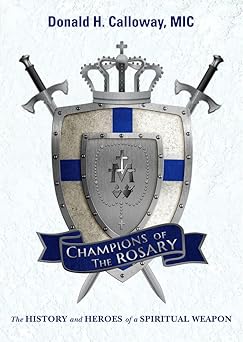I came across this article on Catholic Exchange about a new set of Rosary mysteries — The Hopeful Mysteries. These mysteries walk you through events of the Old Testament. Namely:
- Creation
- The Great Flood
- Abraham’s Sacrifice
- The Exodus
- The Immaculate Conception
I will not go into great detail about these mysteries and why they are considered “hopeful.” Instead, let’s explore the question, “Are new mysteries valid?”
How Did the Hopeful Mysteries Come About?
The Evolving Nature of Catholic Practices
When Saint John Paul II introduced the Luminous Mysteries in 2002 in Rosarium Virginis Mariae, there was some concern about whether anyone has the authority to alter the Rosary. The reasoning was that our Mother Mary gave us the Rosary through Saint Dominic. If she had wanted the Luminous Mysteries, surely she would have given them to him. Who are we to meddle with the Rosary, even a pope and saint like Saint John Paul II? Shouldn’t we accept Mary’s Psalter as she gave it to us?
This line of thinking assumes that Mary gave Saint Dominic all 15 mysteries in his private revelations with her. However, that doesn’t seem to be the case. Fr. Donald Calloway, in his book, Champions of the Rosary, walks through the history and adoption of the Rosary. According to his research, the original 15 mysteries developed over time. Catholic tradition holds that Saint Dominic received the Rosary in 1214. However, the original 15 mysteries weren’t formalized until 1569 under Pope Pius V. There were centuries of people discovering and codifying the Rosary.

I think it’s important that we don’t fall under some sort of Catholic version of sola scriptura. Except, this would be sola traditio — only in tradition. I’m not advocating for changes in doctrine. I’m only saying that our practices may change. Catholics, even those who are labeled as “traditional” practice their faith differently than those Catholics in earlier generations. After all, when was the last time anyone celebrated a Mass in Aramaic, which is what Jesus would have spoken in the Last Supper? Let’s not be so caught up thinking that Catholic practices were static and then Vatican II happened and everything changed. Catholic practices, including the Rosary, developed and changed over the centuries.
Should You Pray the Hopeful Mysteries?
That being said, am I integrating the Hopeful Mysteries into my Rosary prayers anytime soon? Probably not. I may include a section for them on RosaryMeds and provide some meditations for those interested. I don’t think they contain any additional aspects of Salvation History that aren’t already encompassed by the existing 20 mysteries. I like how they tie in the Old and New Testaments similar to how the Luminous Mysteries connect Jesus’ ministry to the original 15 mysteries. But I think there’s a difference between a pope introducing new mysteries in an encyclical versus a lay person and then getting approval from a bishop.
I think new Rosary mysteries should be weighed carefully before being promoted globally. That being said, the whole point of the Rosary is to allow Mary to help you grow closer to her son, Jesus Christ. The Rosary is a private devotion, not a precept of the Church. That means you are free to pray it in whatever manner you choose as long as it follows Catholic doctrine. That is why we have variations like the Servite Rosary. If the Hopeful Mysteries or whatever meditation brings you closer to Christ and His Church, then I say go for it.
